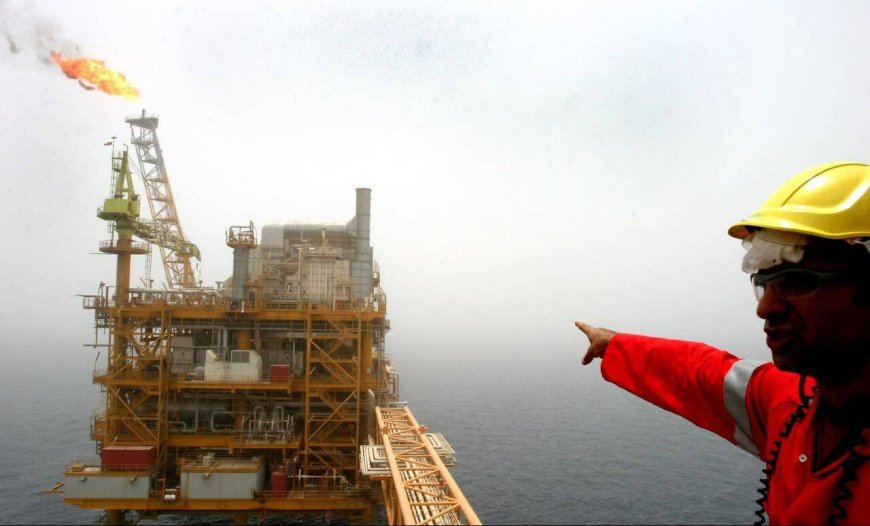The Arash Oil-Gas Field Dispute: A Thorny Issue in Persian Gulf Politics
The Arash oil-gas field, affectionately referred to as Dorra, serves as a poignant symbol of the intricate geopolitical dance unfolding among Iran, Kuwait, and Saudi Arabia. Over time, what began as a cooperative effort has degenerated into a contentious focal point, sparking debates surrounding resource distribution and territorial delineation. Nestled within this shared expanse lies the Arash gas field, boasting a substantial storage capacity of one trillion cubic feet alongside an estimated 42 million barrels of crude oil.

The very nomenclature assigned to this field subtly reflects the nuanced diplomatic dynamics at play, with Iran christening it "Arash" while Kuwait and Saudi Arabia favor "Dorra." However, this linguistic variance merely scratches the surface of the enduring disputes that have entangled these nations for decades, each steadfastly advocating for its rightful share of the Arash field.
The origins of discord can be traced back to the initial discovery of the gas field, which sparked disagreements between Iran and Kuwait regarding the maritime boundaries in the region. While these disputes initially simmered through verbal exchanges, tensions escalated in 2001 when Iran proceeded with exploratory drilling in the Arash field despite Kuwait's objections.
Kuwait swiftly raised its concerns on the global stage, prompting Iran to halt its exploration and development activities until a resolution on the water boundaries could be reached. Unbeknownst to Iran, Saudi Arabia and Kuwait had already commenced joint exploration and development endeavors in 2000, setting the stage for further complications.
The repercussions of these actions became evident when, based on border delineations, a significant portion of the Arash field's oil and gas infrastructure fell within Iranian waters. Despite Iran's efforts to assess reserves near the agreed border through Arash Well No. 1, Kuwait, armed with seismic data from Shell, unilaterally redefined the border, placing the entirety of the Arash field under Arabic jurisdiction—a move vehemently contested by Iran.
Efforts to negotiate a Memorandum of Understanding between Iran and Kuwait in 2013, showcasing various border scenarios, hit a roadblock following the Emir of Kuwait's visit. Subsequent alterations to the foundational installations in the Arash Field underscored the intricate diplomatic maneuvers at play.
The recent development on March 25, 2022, where Saudi Arabia and Kuwait forged a development agreement for the Arash gas field without Iran's involvement, led to Iran's official rejection of the pact's legitimacy on April 6. A curious twist unfolded on April 9 when Kuwait's Foreign Minister initially acknowledged the trilateral nature of Dorra but later backtracked under perceived pressure, asserting exclusive Kuwaiti-Saudi ownership.
Amidst these convoluted developments, recent statements from Saudi Arabia and Kuwait regarding the Arash field have raised concerns about Iran's sovereignty. The strategic importance of Arash transcends its abundant resources, encompassing the critical imperative of upholding Iran's territorial integrity and resolving the longstanding border dispute imposed by Kuwait over the past 12 years.
Despite previous agreements on maritime borders, Iran has yet to assert its sovereignty decisively in the Arash field. A lack of robust oil diplomacy, exemplified by the omission of Arash from new oil contract initiatives, has allowed past governmental efforts to stagnate. As a result, Iran remains vulnerable to future complications stemming from continued assertions by Kuwait and Saudi Arabia.
In conclusion, the Islamic Republic of Iran must move beyond prudent criticism. A fundamental shift is essential to safeguarding its claims over the Arash field, demanding a vigorous and sustained diplomatic push. The stakes are high, not only in terms of resource distribution but also in asserting national sovereignty in a region rife with geopolitical intricacies. The time has come for Iran to deftly navigate the complex geopolitical landscape and secure its position in the contested Arash oil-gas field.













































